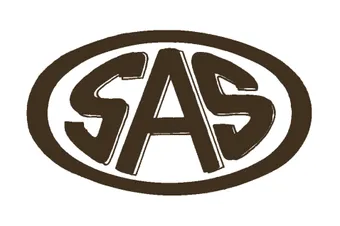Embarking on your first tax self-assessment can be a daunting task, but with the right guidance, it becomes a manageable and even empowering process. At Sandwell Accountancy Services Ltd, we understand the nuances of self-assessment, and we’re here to help you navigate the intricacies seamlessly.
Understanding Tax Self-Assessment:
A tax self-assessment is a process where individuals, including self-employed professionals and business owners, report their income and expenses to determine the tax they owe to HM Revenue and Customs (HMRC). It’s a comprehensive evaluation that ensures individuals are paying the correct amount of tax based on their financial activities.
Key Points to be aware of:
Submission Deadline
The deadline for submitting your self-assessment tax return is a critical aspect to be mindful of. At Sandwell Accountancy Services Ltd, we emphasise the importance of meeting the deadline to avoid penalties. The usual deadline is January 31st for online submissions, but it’s advisable to start the process well in advance to allow ample time for preparation.
Documents Needed
Gathering the necessary documents is a crucial step in preparing your tax return. This includes income records, expense receipts, and other relevant financial documents. Organising these documents systematically ensures a smooth and accurate preparation process. Remember that enlisting the help of bookkeeping services can make the tax preparation process much easier. Professional bookkeepers are skilled at maintaining organised financial records throughout the year, which makes it easier to access and compile the required documents when tax season comes around. They ensure that income records and expense receipts are well-documented and use effective tracking methods, reducing the risk of missing deductions or making errors during tax preparation.
Registration Process
Registering for your tax self-assessment is essential for those who haven’t submitted a tax return before. We recommend registering as soon as possible to avoid any delays. The registration process can be completed online on the HMRC website, and we can guide you through the steps to ensure a hassle-free experience.
Common Allowances
Familiarising yourself with common allowances you can deduct is key to optimising your tax return. We will clarify allowable expenses may include business-related costs, charitable donations, and pension contributions. Being aware of these allowances helps maximise your tax efficiency.
Addressing Mistakes
Mistakes can happen, but addressing them promptly is crucial. If a mistake is made in your tax self-assessment, it’s advisable to inform HMRC as soon as possible. We can assist in rectifying errors and ensuring compliance with tax regulations.
Records to Keep
After submitting your tax self-assessment, it’s essential to maintain records for at least five years. We advise keeping copies of your tax return, supporting documents, and any correspondence with HMRC. These records serve as valuable documentation in case of audits or inquiries.
Do I Need an Accountant to Help Me with My Tax Self-Assessment?
While some individuals choose to navigate the self-assessment process independently, enlisting the expertise of an accountant can provide numerous benefits. We can bring a wealth of knowledge and experience to the table. From ensuring accurate submissions and identifying potential deductions to offering strategic advice for future financial planning, our team is dedicated to making the tax self-assessment process as seamless and advantageous as possible.
In conclusion, preparing for your first tax self-assessment may seem like a formidable task, but with the right support, it becomes a manageable and even insightful process. We are here to guide you every step of the way, offering expertise in accountancy services, self-assessment tax return, bookkeeping services, and acting as your trusted tax advisor. Take the first step towards a stress-free tax season – partner with us at Sandwell Accountancy Services Ltd.
